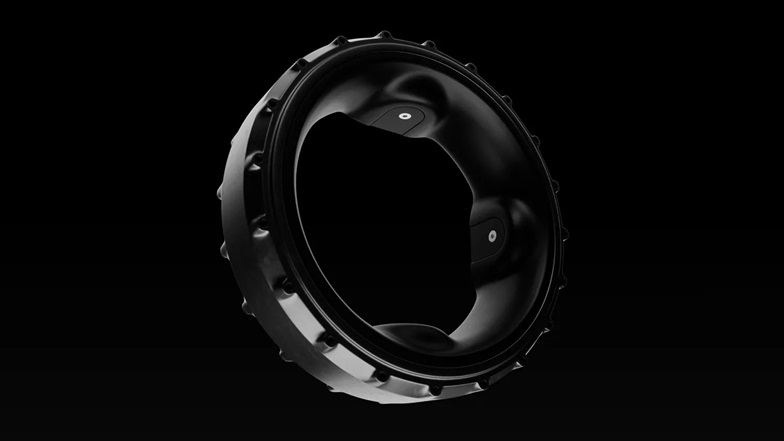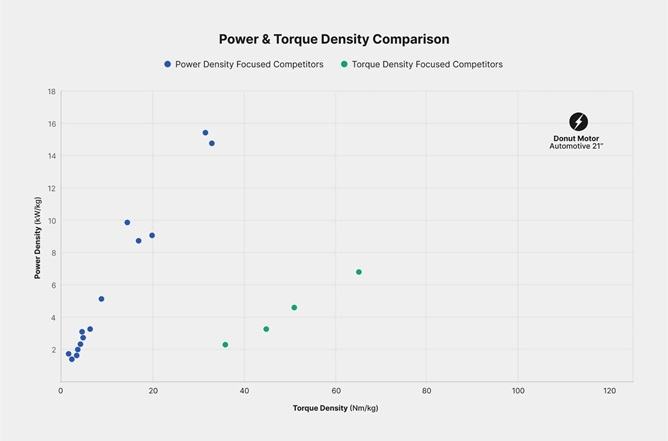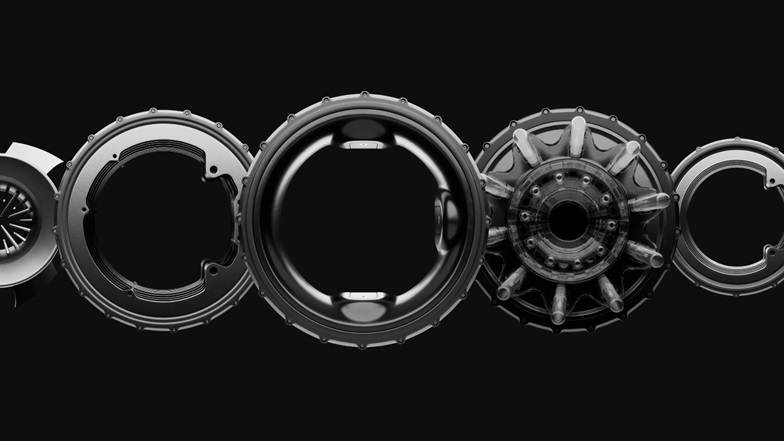Donut Lab Revolutionary High-Power Motors: A Game-Changer for EV Technology
The future of electric vehicles (EVs) is taking a bold step forward, thanks to an innovative breakthrough from Donut Lab, a subsidiary of Finland’s Verge Motorcycles. At CES 2025, Donut Lab unveiled a new family of donut-shaped motors, claiming they possess the highest power density of any such unit in the world. Designed for integration into vehicle wheels and tires, these motors promise to redefine EV performance and manufacturing efficiency.
Let’s dive into what makes these motors revolutionary and how they could reshape the EV industry.

What Are Donut Motors?
Unlike conventional electric motors, Donut Lab’s motors are ring-shaped and designed to sit directly within the wheels of a vehicle. This in-wheel motor design eliminates the need for traditional drive shafts and transmissions, simplifying vehicle architecture.
These motors may add unsprung mass—the weight directly supported by the suspension system—but Donut Lab claims to minimize its impact with lightweight materials. The motors are designed to improve performance and lower production costs while maintaining their structural efficiency.
Power and Versatility: A Motor for Every Vehicle
Donut Lab’s motor lineup includes five distinct designs, each tailored to specific vehicle types, from passenger cars to drones:
- Automotive Motor (21-inch)
- Power: 844 hp
- Torque: 3,171 lb-ft
- Weight: 88 pounds
- Use Case: High-performance electric vehicles
- Semi-Truck Motor (21-inch)
- Power: 268 hp
- Torque: 2,212 lb-ft
- Weight: 88 pounds
- Use Case: Heavy-duty commercial vehicles
- Motorcycle Motor (17-inch)
- Power: 201 hp
- Torque: 885 lb-ft
- Weight: 46 pounds
- Use Case: Electric motorcycles
- Scooter Motor (12-inch)
- Power: 20 hp
- Torque: 221 lb-ft
- Weight: 17 pounds
- Use Case: Lightweight urban scooters
- Drone Motor (4.7-inch)
- Power: 4 hp
- Torque: 14 lb-ft
- Weight: Minimal for aerial applications
How Do These Motors Impact EV Manufacturing?
One of the standout claims from Donut Lab is that their motors maximize power density, allowing more power to be packed into a smaller and lighter unit. This design can significantly reduce the material and production costs of electric vehicles.
In addition, Donut Lab plans to offer these motors as part of a complete platform that includes battery packs, control units, and software, simplifying the manufacturing process for automakers.
While this innovation could lower production costs and improve performance, it remains unclear how these motors compare in terms of energy efficiency, a key metric for EV sustainability and range.

Challenges with In-Wheel Motors
In-wheel motors are not a completely new concept. Over the past century, companies like Porsche and Ferrari have experimented with similar designs. However, attempts to bring this technology to market have met mixed results.
- Porsche has explored in-wheel motors for over a century, but the design complexities have kept them from mass production.
- Startups like Lightyear and Lordstown Motors made headlines for their ambitious plans but struggled to commercialize in-wheel motor technology for U.S. markets.
- Companies like Aptera initially considered in-wheel motors for efficiency-focused vehicles but faced similar challenges.
These challenges highlight the technical and market hurdles Donut Lab will need to overcome to make its motors a commercial success.
Donut Motors vs. Conventional EV Motors
For comparison, Lucid Motors currently holds the title for the lightest production EV motor, weighing just 68 pounds. Lucid’s advanced motor technology has proven its reliability and is even set to power future Aston Martin EVs.
While Lucid’s motors are impressive, Donut Lab’s design offers a different approach by integrating the motor directly into the wheel. This innovative setup could open new possibilities for vehicle design and efficiency, provided the unsprung mass challenge is effectively addressed.
A Revolutionary Step Forward or Another Experiment?
Donut Lab’s motors represent an exciting development in EV technology, pushing the boundaries of what’s possible with in-wheel designs. By offering powerful, lightweight, and versatile motors, the company aims to revolutionize the EV manufacturing process and improve vehicle performance across multiple applications.
However, the commercial success of this innovation depends on several factors:
- Efficiency: How well these motors manage energy consumption compared to conventional designs.
- Ride Quality: Minimizing the impact of added unsprung mass on handling and comfort.
- Adoption: Whether automakers and consumers embrace this new technology.

With its bold claims and groundbreaking design, Donut Lab has undoubtedly captured the attention of the automotive world. Whether these motors will live up to their promise remains to be seen, but they could mark a turning point for electric vehicles if they do.
As the EV market continues to evolve, innovations like these play a crucial role in shaping the future of sustainable transportation. For now, all eyes are on Donut Lab and its revolutionary motors as they gear up to redefine the EV landscape.
What are your thoughts on Donut Lab’s high-power donut motors? Could this be the breakthrough EVs need, or will it face the same hurdles as its predecessors? Let us know in the comments!
Related Post
